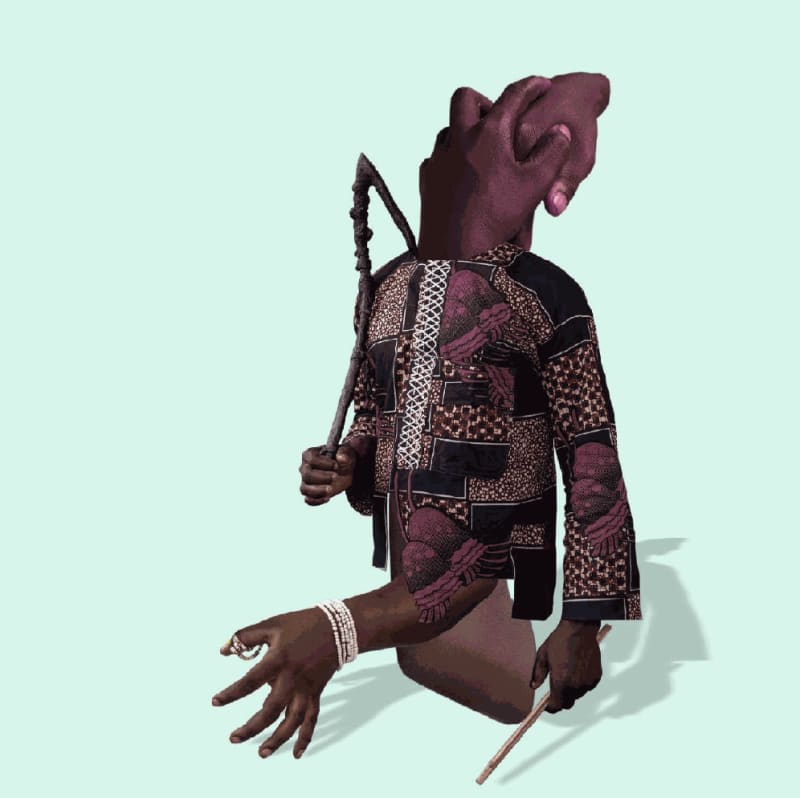kó brings together four Nigerian artists whose diverse influences and vibrant experimentation demonstrate exciting possibilities in how contemporary artists engage, complicate, and challenge narratives of the self and the other, cultural memory, social practice, and divergent realisms. Working within and beyond these themes, these artists eschew strict notions of formal and conceptual unity, embracing, instead, the hybrid, sidereal and inchoate.
Diana Ejaita’s work embraces strong political and social themes, often depicting racial and gender issues in a distinct and expressive style. Her illustrations have been featured in numerous international publications including The New Yorker, The New York Times, The New York Times Magazine, The Washington Post, The Boston Globe, The Economist, Vogue, Financial Times, and Monopol. She has also worked with brands like Google, Apple, and Coca-Cola Nigeria.
Edozie Anedu is a painter based in Benin City, Nigeria, who explores popular culture, social issues and his personal experiences through oils, acrylics and pastels. His paintings incorporate elemental forms that verge on the abstract, with figures and symbols drawn with rapid, expressive brush strokes. His work often includes cultural references that span music, fashion and entertainment.
Joseph Obanubi is a multimedia artist based in Lagos, Nigeria, whose work explores the relationship between identity, fantasy, technology, and globalisation. He is best known for his collages which reconstruct fragments found in everyday experiences. Obanubi considers his work to be a visual bricolage - a (re)construct of different subjects taken from their original context into a new one. His creative ideology stems from concepts of delusion, surrealism, futurism, and experimentation, providing an alternative way of seeing regular things.
Stephen Tayo is a photographer who captures intimate portraits that reveal the sartorial flair and quiet dignity of his sitters. Focusing on their clothing and accessories, his work explores the multi-layered symbolism of fashion: what clothing says about identity and relations with family and community. He also often trains his lens on everyday, commonplace but yet undocumented subcultures; elevating ordinary moments of his environment: at festivals, family celebrations, friendships, across Nigeria and beyond. His sitters are usually active participants in the act of picture taking; they perform along with the photographer or often times even set the tone. Adopting formal poses that were popular in the studio photography in West Africa in the 1950s and 1960s, his work is influenced by the portraits of Seydou Keita, Malick Sidibe and Samuel Fosso.





